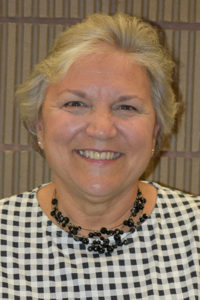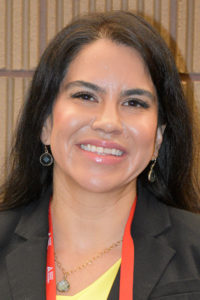
A panel of clinical leaders discussed the importance of educating hospital staff about diabetes management and care during the Scientific Sessions symposium Inpatient Education—Teaching Staff with a Focus on Hospital Systems on Monday, June 6. The session can be viewed on-demand by registered meeting attendees at ADA2022.org.
Jane Jeffrie Seley, DNP, MPH, MSN, GNP, RN, BC-ADM, CDCES, CDTC, Weill Cornell Medicine, discussed the importance of training bedside staff about diabetes technology. She called inpatient care of diabetes patients “the wild, wild West,” citing a recent study she conducted examining the methods, design, and clarity of diabetes technology policies at 16 hospitals. Many, she found, hadn’t updated their policies in the past two years—since before the COVID-19 pandemic, which was a “game changer” in diabetes care.
Seley advocated for the use of telemedicine technologies and specifically recommended the Cisco Jabber communication solution.

“About half of our sites don’t have someone like us to help them with diabetes issues, so it’s hard to support those patients unless we can do virtual consults,” she said. “I do know diabetes care and education specialists who actually drive back and forth to three different sites, which seems crazy.”
Seley noted that the ADA supports allowing patients to keep their personal diabetes technology devices when hospitalized, and so does she, except for critically ill patients and those who are severely depressed or have suicidal ideations.
“We really need to make every effort to support our patients that come in and want to wear their CGM (continuous glucose monitor) and want to wear their pumps,” she said. “It’s important to them and I don’t want to take the devices away. It’s like taking dentures away.”

Rebecca L. Longo, ACNP-BC, MSN, CDE, Lahey Hospital, discussed the use of automated insulin delivery (AID) systems in the hospital. Each AID has different effects on patients, so staff must be trained to monitor changes in insulin requirements, diet, stress levels, insulin sensitivity, renal function, and use of steroids, she said. They should also be reminded to consider hospital targets for blood glucose levels. Staff should also be advised that many of the algorithms used by AIDs look 30 to 60 minutes ahead to predict insulin needs.
Leigh B. Bak, MSN, APRN, ACNS-BC, CDCES, Yale New Haven Hospital, discussed how to educate staff to prevent sentinel events for malglycemia. She reviewed common barriers to inpatient glycemic control and shared several strategies to overcome the barriers.
First, she said, health systems must build safer environments by documenting “helps” for nurses, providing onsite consultation services with endocrinologists, creating electronic health record alerts, and using excursion event alerts. Creating and referring to glucose trend charts is also essential, she said.

Everyone who deals firsthand with patients should get at least some training about diabetes management, Bak said. That includes all providers, nurses, pharmacists, the call center, and even the person who delivers food trays. And it should be done frequently, she said, during orientation, grand rounds, and weekly meetings. Educating everyone is vital to producing a good patient experience, she said.
“Those of you who are in inpatient care, you’ve had people in the hospital who say, ‘These idiots don’t know what they’re doing. I’ve never seen a blood sugar this high in all my years.’ Or, ‘I’ve been taking insulin forever and never had such problems with low blood sugar,’” Bak said. “It really does affect the patient experience when we don’t do an excellent job managing their glycemia, and that’s the point of education.”
Also during the session, Lisa Diaz, RN, MSN, CDCES, Diabetes Program Manager and Co-Investigator at Pomona Valley Hospital, discussed the importance of educating patients and nurses to reduce readmissions for diabetic ketoacidosis (DKA). DKA is a big problem in her community where Hispanic men tend to wait until they’re very sick to seek medical care, she said.
[sub-post-content]